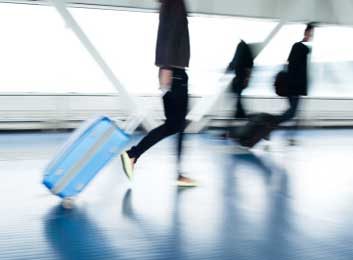How to avoid jet lag
Don’t let jet lag ruin your vacation. Next time you’re flying to another time zone, try these strategies

Source: Best Health magazine, December 2012; Image: Thinkstock
If you’re flying across more than two time zones, eat (but don’t overeat) starches such as pasta or rice the night before your flight. Carbs help your body adjust more quickly to sudden jolts to its circadian rhythms.
The air circulating in the cabin during flights tends to be bone-dry, which causes dehydration, a big contributor to jet lag. Avoid making things worse: Pass up the caffeine and alcohol (the latter is two to three times more dehydrating than usual when it’s consumed at cruising altitude). And be sure to drink lots of water before, during and after your flight.
If you’re flying at night, sleep. Use earplugs and an eyeshade, turn down the lights, use a blanket and, if your aircraft has temperature-adjustable air conditioning, put it on a cool setting, which sends a message to your body that it’s nighttime.
Resist the urge to nap on arrival, no matter how tired you are. If you’re landing in the morning, take a shower and eat an egg for breakfast’the protein will help you through your first day. Then head out right away to go sightseeing or visiting.
Stay up as late as you can, preferably until your normal bedtime. So, if you go to bed at 10 p.m. at home, try to stay up until 10 p.m. in your new time zone. And sleep as long as you possibly can; if you wake in the wee hours, stay in bed. By your second night, you should have successfully tweaked your body’s time clock into a new routine.
This article was originally titled "Avoid jet lag" in the December 2012 issue of Best Health. Subscribe today to get the full Best Health experience’and never miss an issue!




